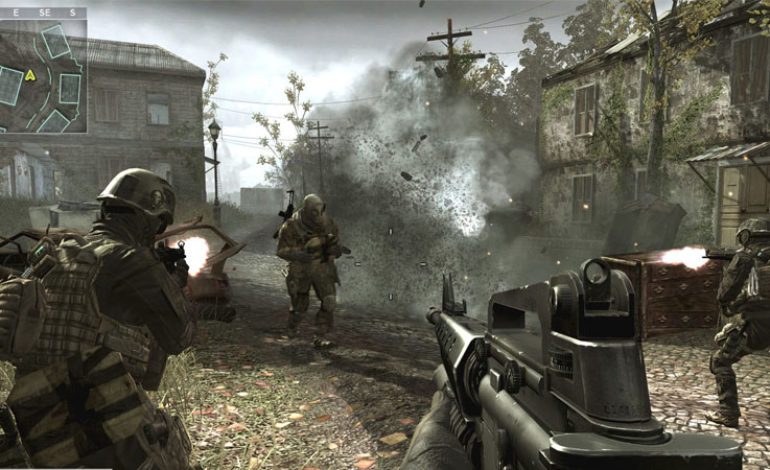

Following this weekend’s mass shootings, President Trump spoke at a press conference this morning at the White House. As he addressed ways to prevent future tragedies like these, he blamed “gruesome and grizzly video games” for “[glorifying] violence” and ultimately influencing youth to carry out these horrific crimes.
President Trump calls for “cultural change” following mass shootings: “We must stop the glorification of violence in our society. This includes the gruesome and grizzly video games that are now commonplace” https://t.co/yYzXIN5Uub pic.twitter.com/C7u2qImL4j
— ABC News Politics (@ABCPolitics) August 5, 2019
Trump joins many others in taking this stance. House Minority Leader Kevin McCarthy just made a similar comment in an interview earlier this weekend, arguing violent video games “dehumanize individuals.” Before McCarthy, Texas Lt. Gov. Dan Patrick claimed the video games industry “teaches young people to kill.” This isn’t the first time Trump has made this argument either, as he similarly blamed video games in the wake of the shooting in Parkland, Florida in February 2018.
Throughout the years, studies have been conducted to evaluate the relationship between video games and violence. Many have found video games to have little to no effect on people committing violent acts in real life.
One study by Scott Cunningham, Benjamin Engelstätter, and Michael R. Ward found that violent video games don’t contribute to violent crimes; if anything, they decrease violent crimes. In their research, they found that when new, popular, violent video games come out, violent crime rates go down, as young people spend their free time playing the new games rather than going out and possibly getting into trouble. Criminal justice scholars call this method “incapacitation,” and it applies to other activities beyond video games. For example, keeping kids and teenagers busy with after-school and summer programs decreases how much time they spend out on the streets, which is where they may encounter trouble.
In a similar vein, separate research conducted by Ward found that areas with more video game store locations have less crime and fewer deaths. As more people have access to video games, the less time they spend outside. This is further representation of the “incapacitation” theory.
Another study, conducted by Whitney DeCamp, an associate professor of sociology at Western Michigan University, found no relationship between playing video games and exhibiting violent behavior. While some studies have found children who play violent video games exhibit more violent or aggressive behavior than kids who don’t, Whitney argued kids who like violent video games may already “have a predisposition toward aggression.”
Though a lot of the research regarding the relationship between video games and violence focuses primarily on gaming in general rather than specifically violent video games, others have argued that comparing the rates of gun violence in the U.S. with other countries where the same popular violent video games are available is proof that video games aren’t the problem.
Responding to the recent shootings, the International Game Developers Association (IGDA) and International Game Developers Association Foundation (IGDAF) issued a joint statement, refuting the claims of Trump and others who have similarly blamed violence on video games.
Our deepest condolences and hearts go out to the victims and families affected by the tragic events in Dayton, Ohio and El Paso, Texas. Society has endured too many senseless acts of violence and horrific mass shootings. Blaming video games distracts from the broader issues at hand. There is an overwhelming amount of research that finds there is no evidence linking video games to violence. Video games do not cause violence, and we support efforts to discontinue this misguided information.
Blaming violent video games first gained prominence after the 1999 Columbine High School shooting, when it was revealed that the shooters were fans of the game Doom. The majority of Americans at the time believed the video game inspired the shooters to act, with many wanting restrictions on selling violent video games to minors. The issue quickly transcended party lines, with both Republican and Democratic politicians connecting real-life violence back to video games. Soon, studies such as the ones referenced above were conducted, and the Supreme Court even weighed in on the issue in 2011 when it denounced a proposed California law banning the sale of violent video games to minors as unconstitutional.
During the press conference, Trump argued that the U.S. “must stop or substantially reduce [violence in video games and U.S. culture], and it has to begin immediately…That’s what we have to do.” Trump hasn’t revealed any concrete plans to legally restrict violent video games in any way, so it’s uncertain what will come from his comments in the long run.
Play games, take surveys and take advantage of special offers to help support mxdwn.
Every dollar helps keep the content you love coming every single day.
